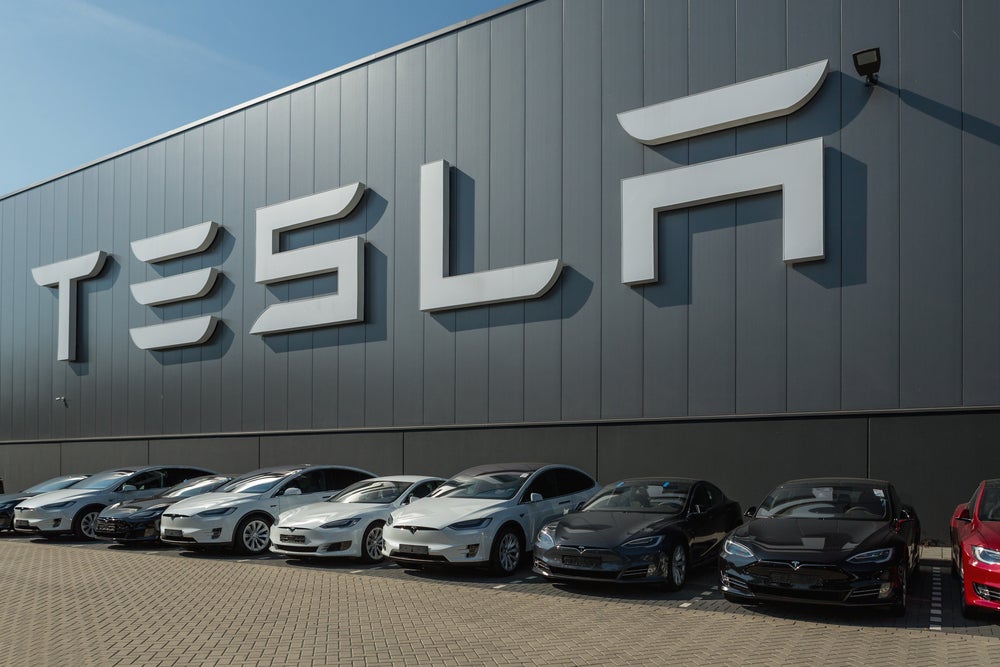
Electric carmaker Tesla has reported its first-ever annual profit, despite fourth-quarter earnings failing to meet expectations.
Yesterday, Tesla released its Q4 and full-year 2020 results. Non-GAAP net income for the quarter reached $903m, up from $386m last year but lower than average analyst expectations of $1.08bn. Operating income rose to $575m and operating margin was 5.4%.
The company, co-founded by Elon Musk, reported that Q4 revenue was up 46%, attributing this in part to “a substantial growth in vehicle deliveries”. The company described the year as “transformative” despite “unforeseen global challenges”.
Tesla delivered a record 180,570 vehicles in the fourth quarter, a 60% increase year on year. Delivering 499,647 vehicles in 2020, the company narrowly missed its target of half a million.
During 2020, Tesla made an annual profit for the first time, with net income of $721m and an “industry-leading” operating margin of 6.3%.
In 2021, the company expects to achieve 50% average annual growth in vehicle deliveries and predicts its profit margins will continue to grow over time.
How well do you really know your competitors?
Access the most comprehensive Company Profiles on the market, powered by GlobalData. Save hours of research. Gain competitive edge.

Thank you!
Your download email will arrive shortly
Not ready to buy yet? Download a free sample
We are confident about the unique quality of our Company Profiles. However, we want you to make the most beneficial decision for your business, so we offer a free sample that you can download by submitting the below form
By GlobalData“After Tesla’s unprecedented run in 2020, investors were anticipating a substantial earnings beat and another big target for car deliveries in 2021,” said Haris Anwar, senior analyst at Investing.com.
“Despite posting a record quarterly revenue, Tesla’s report is short of these details, disappointing the bulls. After such a massive run, the majority of the good news is already factored into the stock price. Any negative surprise at this point will be damaging for the stock.”
Tesla’s success comes at a difficult time for the automotive industry, with new car registrations down 29.4% in 2020. As an electric car company, Tesla is poised to benefit from measures to phase out fossil fuel vehicles, with the UK banning the sale of new diesel and petrol cars and vans from 2030.
However, Tesla’s share price was down 4% in after-hours trading following the announcement.
Anila Siraj, head of data strategy at Kalibrate, said Tesla’s results show promising signs for the electric vehicle market.
“Tesla’s success is not just evident in its profitable fourth quarter, but its significance in driving awareness of electric vehicles (EV) with consumers and making EVs ‘desirable’ by positioning them as ‘tech-led’,” she said. “Tesla fell just shy of its 500,000 vehicles sales target last year – even when the overall car sales drastically dropped. This is down to Tesla’s highly successful brand-building, even with its limited traditional advertising; by prioritising its online presence, the company can reach the tech-savvy consumer who is the likely consumer.
“Tesla continues to outpace competitors, delivering on its promise of supply, still having a backlog of orders, and making sure it keeps this edge by building more Gigafactories to increase production and meet demand. Yet, as we see continued innovation from Tesla to develop affordable models that will only widen its consumer base, the market will need to ensure it provides the necessary infrastructure to support this.
“Momentum for EVs is increasing and fuel retailers, businesses and governments need to seriously consider what the mass adoption of EVs will require: the who, where and when, affordability, off-street parking, charging facilities, impact on the grid and more. Only once organisations lay the groundwork can Tesla and other EV providers drastically change consumer preferences and achieve mass EV uptake globally.”
Read More: Gridserve opens UK’s first electric-only forecourt.







